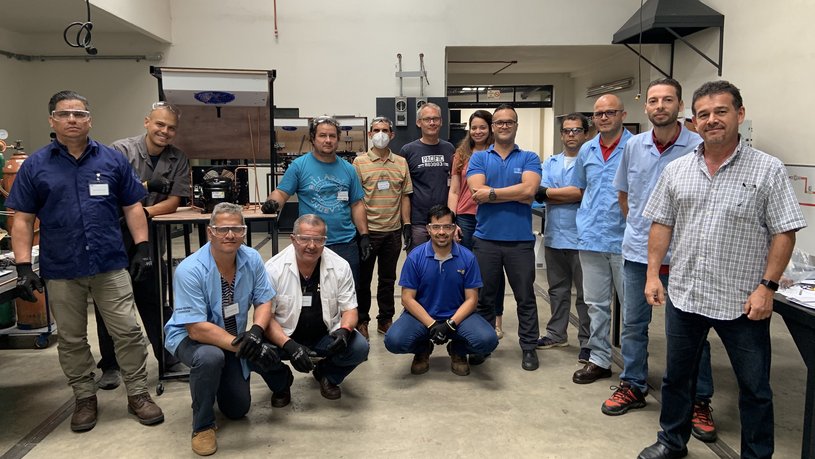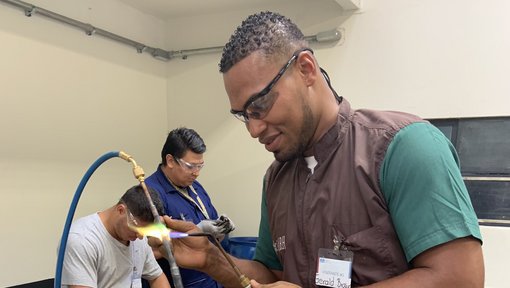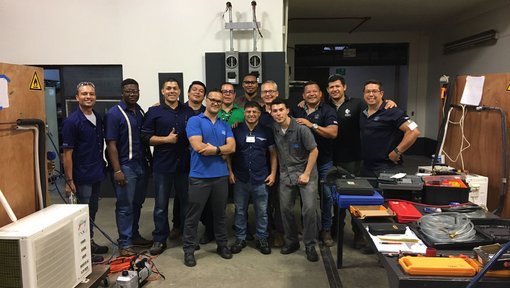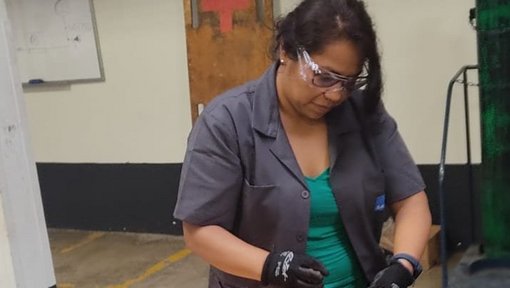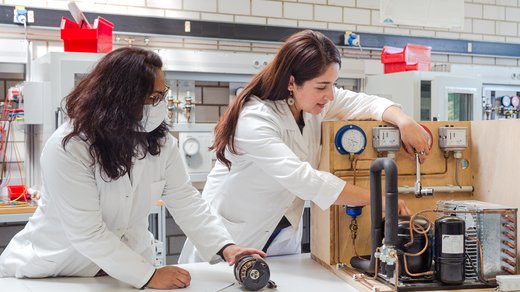In August and September, the first Cool trainings took place in Latin America. Costa Rica hosted more than 35 participants for two national and one regional training.
After a forced two-year break, Cool Trainings are taking place again in Germany and also in our partner countries. In August and September two national and one regional training took place in Costa Rica. They were organized in cooperation with the Bundesfachschule Kälte-Klima-Technik (BFS) and the Fundación Hedwig y Robert Samuel in San José, Costa Rica. The objective was to improve technical capacities for the safe use of natural refrigerants and to facilitate the exchange of experience and expertise at regional level in Latin America and the Caribbean (LAC).
About Cool Trainings in Costa Rica
Cool Trainings are capacity building measures directed to Refrigeration and Air Conditioning (RAC) technicians and trainers as well as decision makers and have proven to be key to promote natural refrigerants. The national training activities in Costa Rica have been organized by Cool Contributions fighting Climate Change II (C4 II) and the regional LAC Cool Training by Green Cooling Initiative III (GCI III). The two IKI projects are implemented by GIZ Proklima on behalf of the Federal Ministry for the Environment, Nature Conservation, Nuclear Safety and Consumer Protection (BMUV).
The cooperation set out with visits to 10 training institutes throughout Costa Rica. During these visits, a trainer from BFS exchanged with and advised training centers regarding their curricula, as well as qualification, certification and registration (QCR) systems. Michael Hoffmann, BFS engineer and trainer, shared his experience in implementing trainings using natural refrigerants and trends in Green Cooling technologies. During the visit Mr. Hoffmann inspected training facilities and training equipment of the centers. He advised on how to strengthen and improve trainings directed to RAC technicians and highlighted theoretical and practical aspects of natural refrigerants.
After the site visits, three trainings took place in the training facilities of Fundación Samuel in San José, Costa Rica. Two national trainings and one regional training had been planned for 38 technicians and trainers from Costa Rica and other seven countries of Latin America. The theoretical component of the advanced training tackled all natural refrigerants. The practical part focused on R290 and its application in commercial refrigeration. During the one-week Training of Trainers (ToT), participants strengthened and broadened their expertise to introduce other technicians in these technologies in a number of countries and training institutes throughout the LAC region.
I learned a lot and I am very enriched to share various experiences in my Training Center

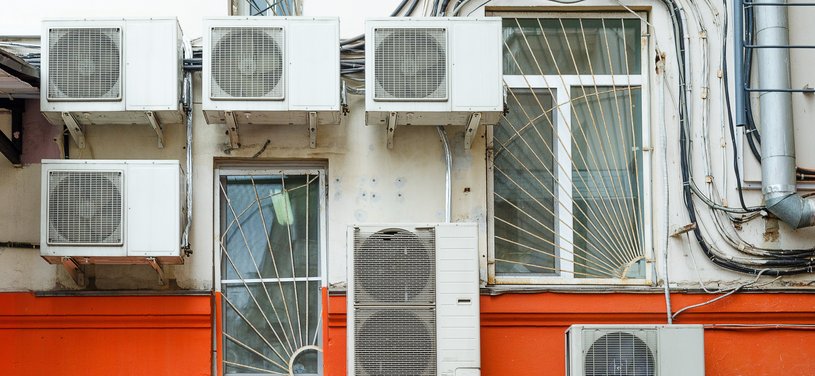 Image: Shutterstock
Image: Shutterstock